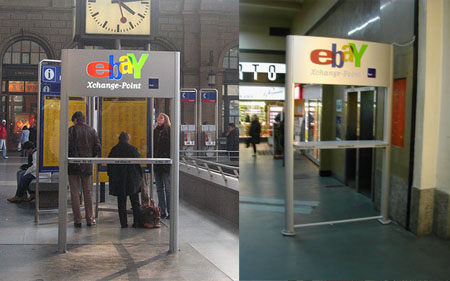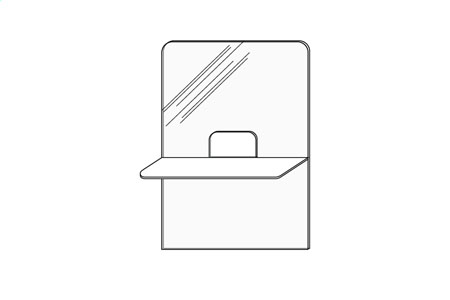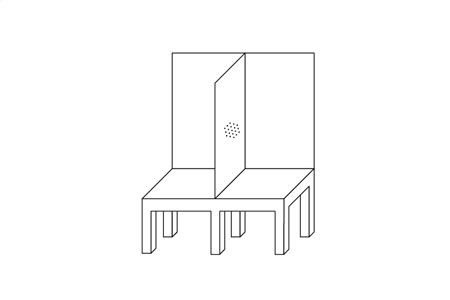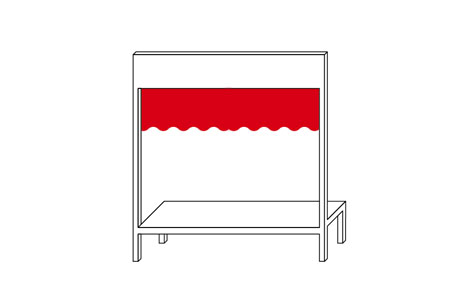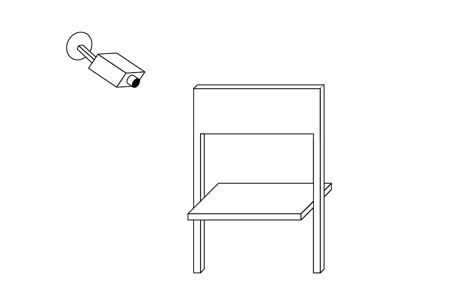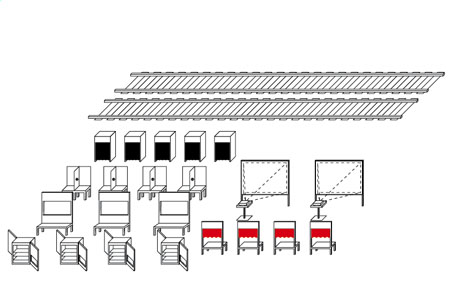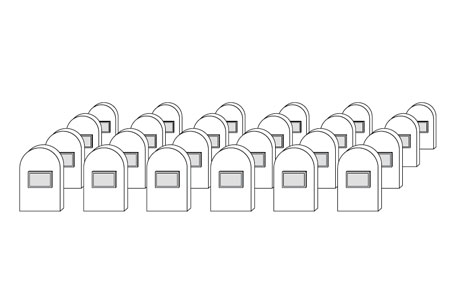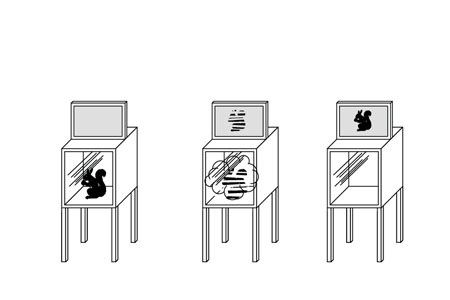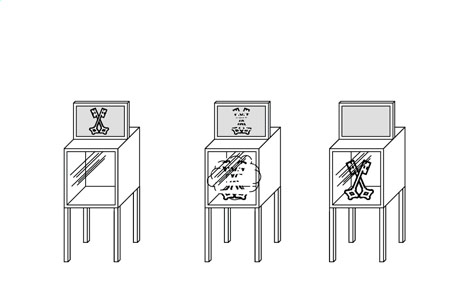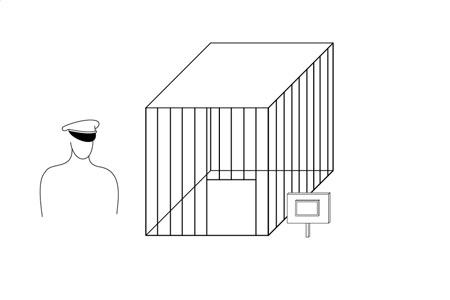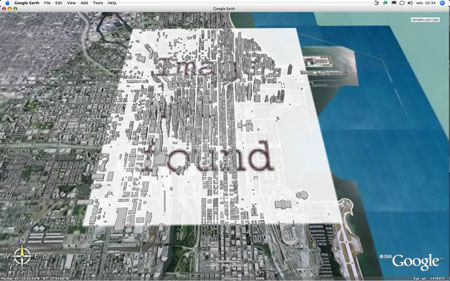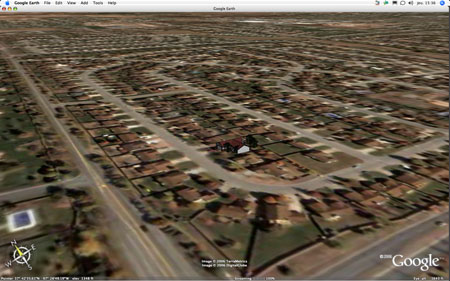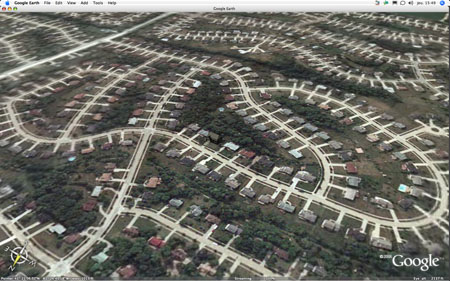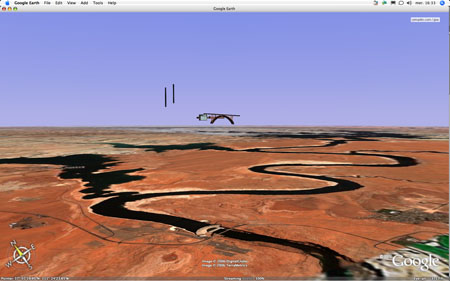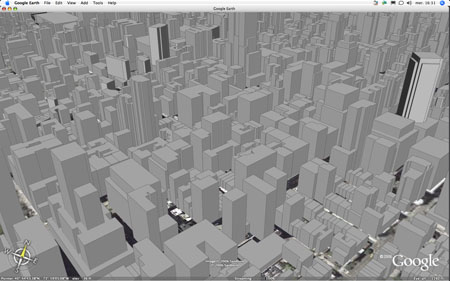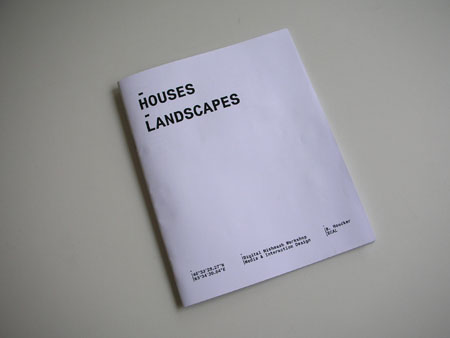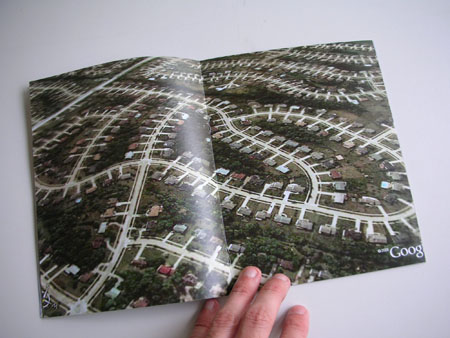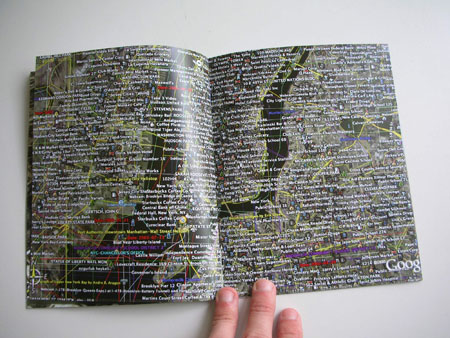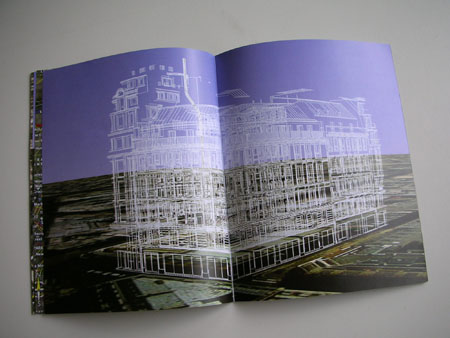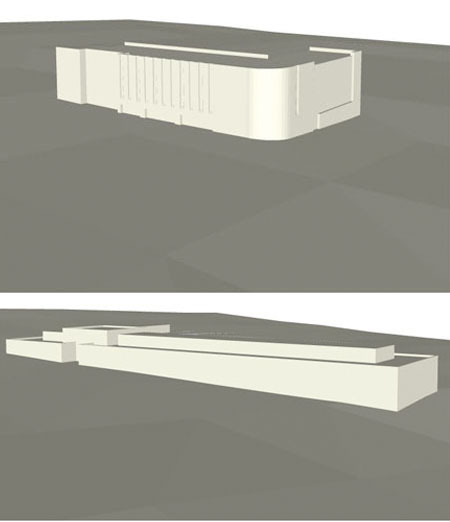« April 2006 |
Main
| June 2006 »
XjARToolkit - Version 1.0
The official first version of Xj3D was released. Some adaptations of our previous work were needed in order to allow the mix between Xj3D version 1.0 and jARToolkit (in the same way it was previously made with Xj3D version M10).
In comparison with the previous version of XjARToolkit, by taking benefit of Xj3D version 1.0 libraries, all objects are now correctly mapped, including mpeg movies. This is a direct benefit of chosing a 'still alive' open technology like Xj3D in comparison with openVRML. Please, refer to previous post for a direct comparison.
XjARToolkit 1.0 will be the basis for end-user examples in order to implement interaction & behaviors tree
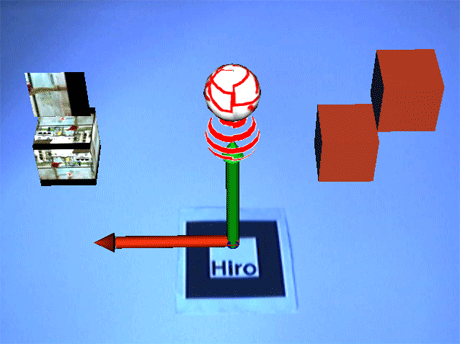
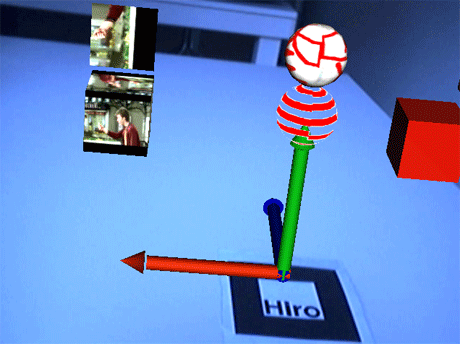
Posted by christian_babski at 14:49
Ben Hooker - Dataclimates - Royal College of Art, London
Ben Hooker will join the project for a workshop beginning of May.
Ben has collaborated with Tony Dunne and Fiona Raby on several research projects for the Royal College of Art (i.e. see the FLIRT or the PRESENCE projects). He is the founder of Dataclimates, an agency that has interests in research, architecture, contemporary space and interaction.
-
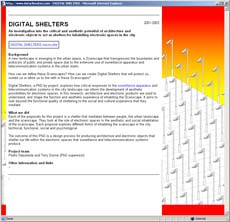
Ben Hooker was also a teacher at the Royal College of Art, Interaction Design (MA) and at Central St-Martins College of Art & Design, Graphic Design (BA), until 2005.
-
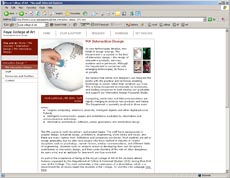
Posted by patrick keller at 16:40
"Designing for mishmash" workshop
Ar&D and 3rd year MID students Workshop with Ben Hooker
Monday 8th to Friday 12th May 2006
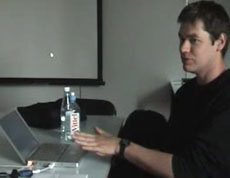
Works & Projects presentation
ecal 08.05.2006 (1h00 vidéo flash8)
Works & Projects at the Royal College of Art
ecal 10.05.2006 (1h00 vidéo flash8)
-
New information and communications technologies and the services they
enable often evoke feelings of escape from the messy, constrained, physical, world we inhabit. For example, advertisers of 'virtual' Internet-based products frequently show images of people undertaking unambiguous tasks, blissfully disconnected from any distractive physical environment, or, if they are portrayed in a real context it is a simplistic one – writing an email in an office, phoning a friend from a car, shopping on the Internet while at home. These aspirational characters seem have everything under control and they can do everything they need to from their desktop, laptop or mobile phone.
-
Obviously – and thankfully – this is only part of the picture of the
Information age. Information and communication technologies cannot
diminish the importance of the physical world – but they can and do cause it to fragment and shift around a bit. For example, consider the Internet-based bookseller Amazon. We perhaps think of Amazon as a 'virtual' bookstore, but on the outskirts of London, in a massive new distribution depot there is intense physical activity as the depot processes orders in response to people buying books on the website. There are many other examples of similar situations. It's clear that the day-to-day physical places we inhabit are becoming *more* complicated, not less, because of all the building work in cyberspace.
-
This project is not just about the link between Internet spaces and physical spaces. The aim of the workshop is to uncover and explore the design potential of new situations that are occurring as the result of information and communication technologies being woven ever more intricately into our day-to-day lives.
-
Part 1
Collect examples of 'mishmash' situations involving technology which
contrast to the bland, homogeneous scenarios fed to us by advertisers.
These can be real situations that you have researched or observed directly or can be entirely speculative, so long as they are grounded in fact. They can be localised or large-scale, e.g. What *really* happens when you try to do 3-4 things together like phoning and computing and buying and walking?
-
Part 2
Design an 'interface' prototype inspired by your chosen situation. This 'interface' could be anything which provides a new level of access to the situation you have uncovered. It could be a spatial or architectural intervention, a device, an object or piece of software which provides a very specific service.
-
The idea is not to build a working object, but to present an intellectually challenging design proposal by using a combination of a basic prototype or prop (using card, film, animation, sketches...) together with a narrative which enlightens the audience about how the object would be used and what new situations could be created as a consequence of its use. Use your design proposal to take social and political risks. Push the limits of peoples' imaginations. Your proposal can be as fantastical as you desire so long as you can explain how it could work and how it's usage could 'fit' into the
reality of life today.
-
Download the brief (PDF)
Posted by aude at 15:25
Existing mishmash situations' analysis (workshop Ben Hooker)
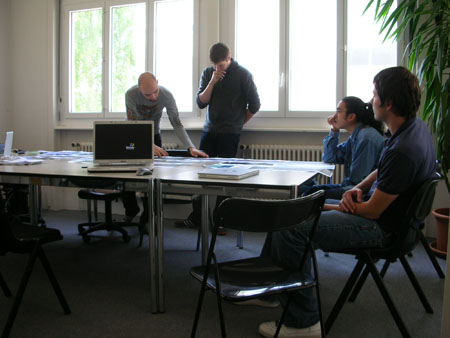
During the first two days of this workshop, a lot of stuff came out.
We discussed about it and inspired each other in different ways.
-
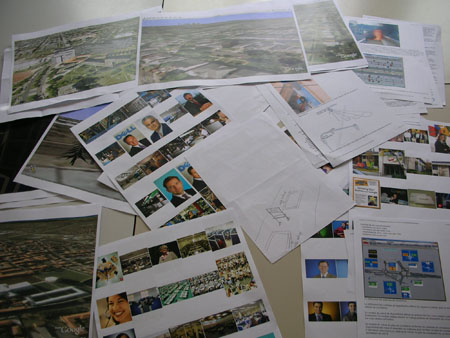
Nicolas was on the RSS feeds and how the information system works.
He was also interrested about the free news paper and the video news in the waiting rooms, the rail station, gaz station etc.
-
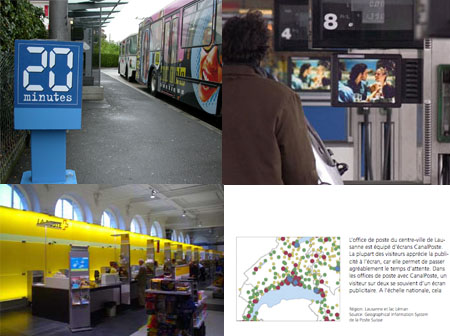
Tatiana, Aude and Bram thought about whats behind compagnies such as Amazon, Ebay or Google.
-
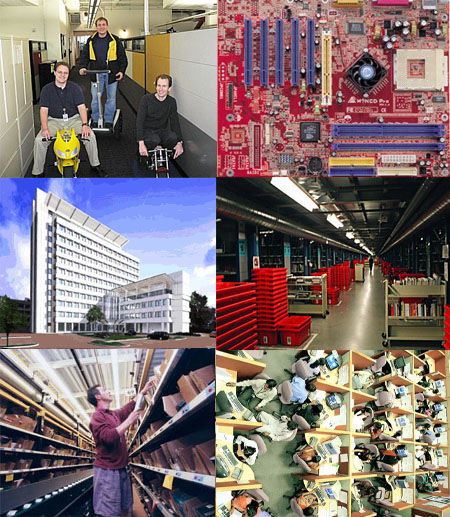
Questions concerning the traffic jam were also mentioned.
How does it work, what's behinf the traffic lamps, what happened if ther is an accident etc.
-
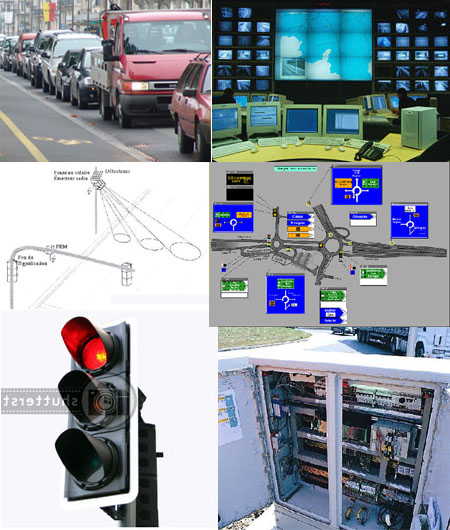
Valerio decide to explore the Google Earth map and discovered some strange results related to the software.
-
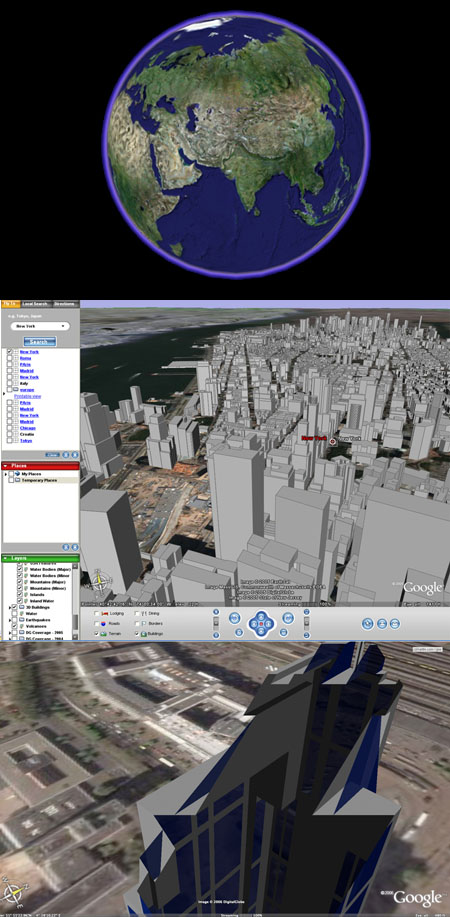
Siméon wanted to work with the indirect light such as TV screens or laptop screens. For example, in the dark, a lot of pepople us their cell phone as a real lamp.
-
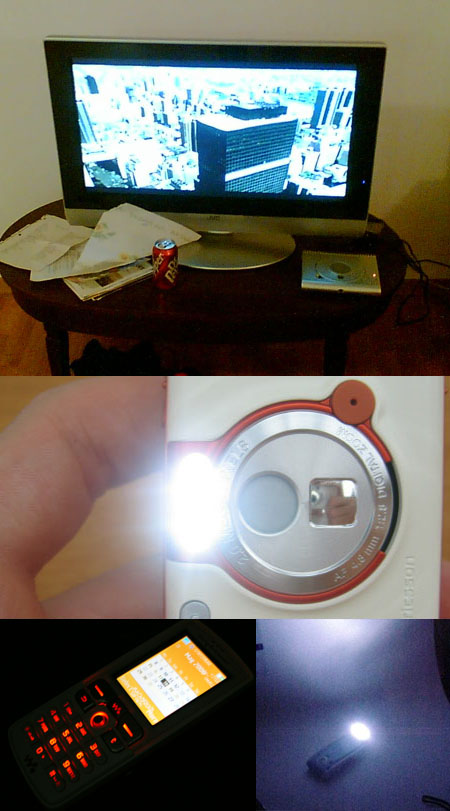
Posted by patrick keller at 15:23
Workshop's result: Behind Google
Project by Bram Dauw
Video Presentation (17min flash8)
The goal of this short video clip is to show the paradox of the big companies who only works with/for internet.
Google, Amazon or Ebay are in a way really abstract, physically they don’t exist in most people’s mind. They just have some basic web pages but people never think about what’s behind it. The big depots, buildings and employees are never showed to anyone.
This short movie tries to show the strange and weired aspect of this situation.
-
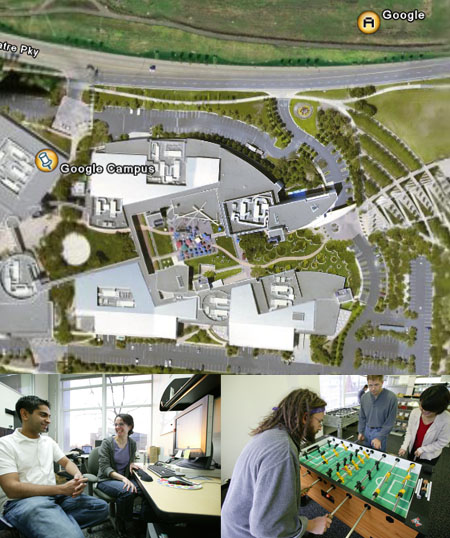
-
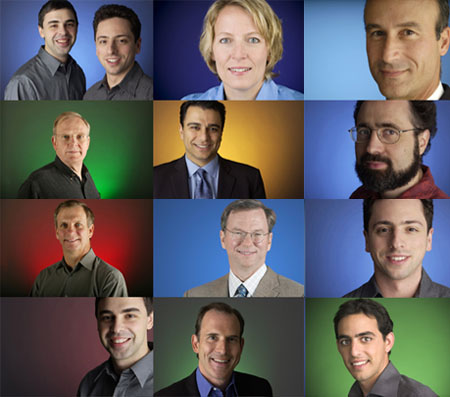
-

Video Clip
-
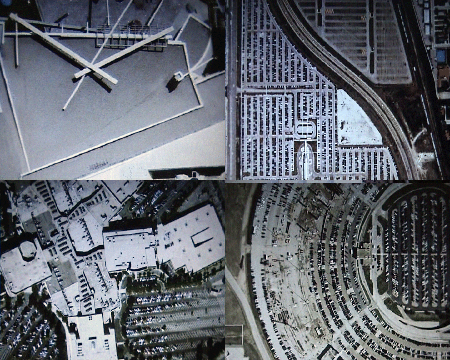
Video Clip (4min flash8) or Download (mov file 7Mo)
Posted by aude at 15:19
Workshop's result: Virtual Presence
Project by Simeon Raymond
Video Presentation (14min flash8)
This is a research about different possibilities of light. The intensity, the colours, the different light emitting materials and cycles of natural light.
A plastic research about light projections and the way they reveal spaces and edges was made. The animation of those projections suggest a presence like a fish aquarium or light projection of a TV screen. In a simple way, Simeon tried to bind virtual space as Google earth to a physical space. The way to trigger a light animation is not a precise action as a click but a more poetic action as moving the cursor near a friend’s house in Google earth.
-

-
Animations
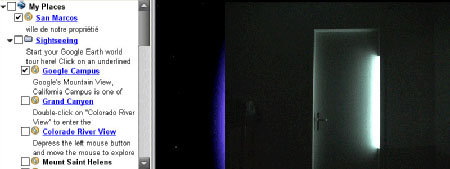
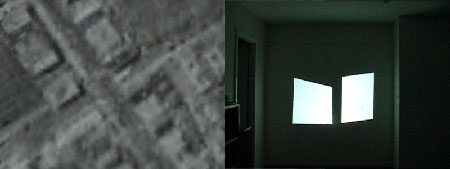
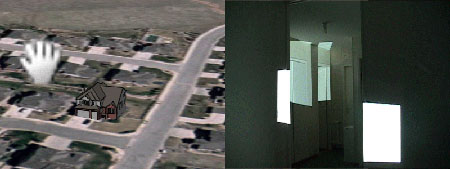
Video flash8
Posted by aude at 15:15
Results: a temporary conclusion by Ben Hooker
Ben Hooker did a short web page to resume the work of the overall week and try to put all projects in perspective.
Check it out HERE.
-
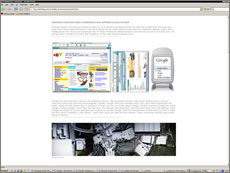 .
.
Posted by patrick keller at 14:11
Fusion of marker-based tracking and particle-filter based camera tracking
We have developed a novel a video-based tracker that combines a marker-based tracker and a particle filter-based camera tracker. The framework relies on their complementary performance. We propose a fusion where the overall estimate is selected among the individual estimates. More precisely, the marker-based tracker is selected when the reference is available whereas the particle filter-based camera tracker is selected otherwise.
Some snapshots of the performance of the fusion tracker in front of:
Occlusions
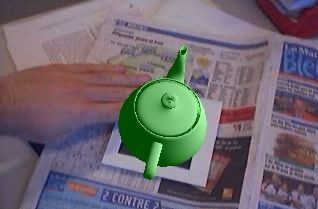
Marker partially out of the field of view
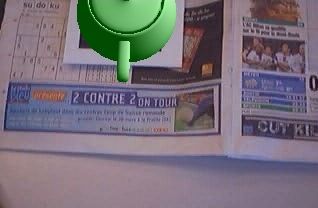
Video input with little illumination

Video input with saturated illumination
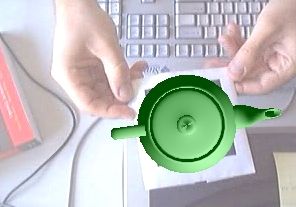
David Marimon
Signal Processing Institute
Posted by david.marimon at 11:08
Contribution to opensource: jARToolkit
During the development of the common platform for demonstration purposes, Christian Babski (fabric|ch) encountered a bug in the opensource code of jARToolkit. Marcelo Fernandez and David Marimon (Signal Processing Institute - EPFL) have successfully solved this bug and reported it to the SourceForge community.
Posted by david.marimon at 11:08
![]()
![]()










